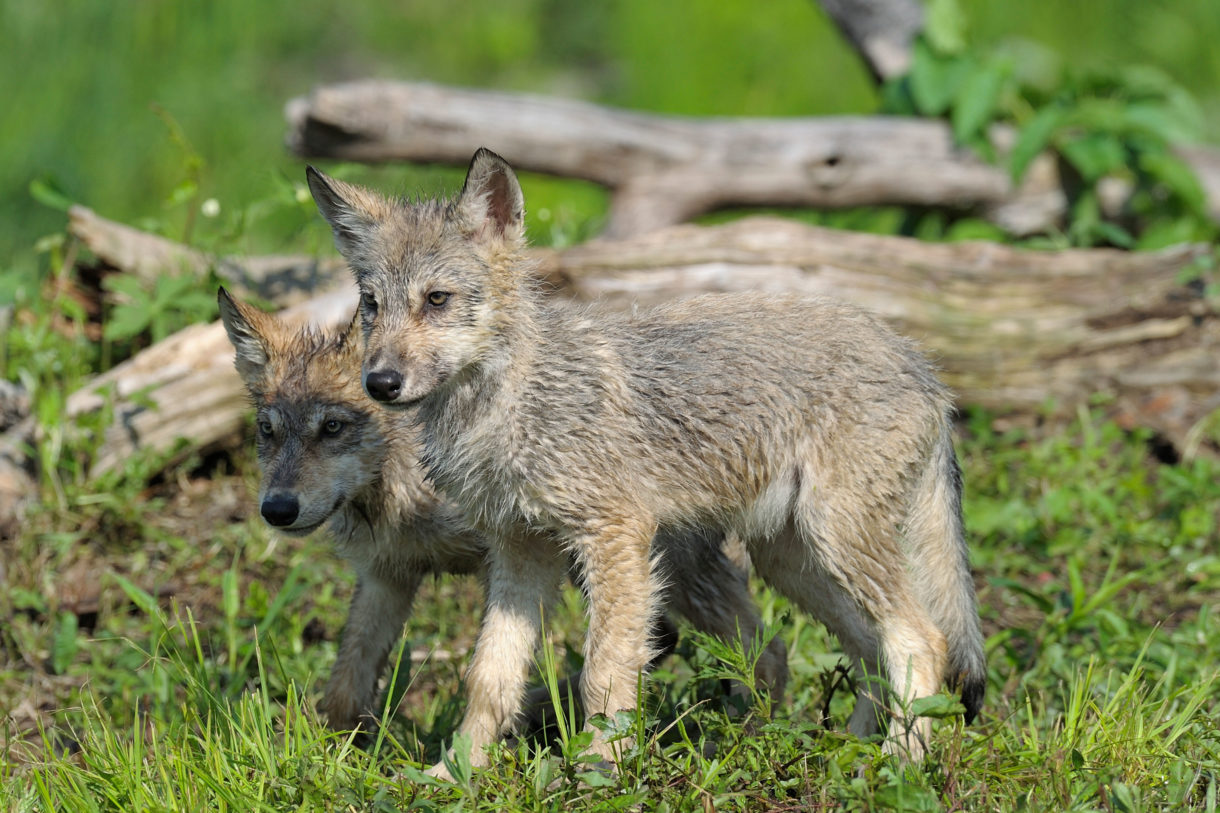
The proposed rule would undo an
Obama-era regulation that prohibits such controversial and
scientifically unjustified methods of hunting as using artificial light
to kill hibernating bears and their cubs and shooting wolf and coyote
pups and mothers in their dens. Photo by Alamy
Trump administration wants to reinstate cruel hunting practices in Alaska, like killing hibernating bears, shooting wolf pups in dens
The Trump administration is trying to bring back some of the worst and most appalling hunting practices for wolves, grizzly bears and other wildlife on 20 million acres of federal public lands in Alaska. A rule proposed today by the Department of the Interior would roll back an Obama-era regulation that prohibits such controversial and scientifically unjustified methods of hunting as using artificial light to kill hibernating bears and their cubs, shooting wolf and coyote pups and mothers in their dens, using bait to attract brown and black bears, shooting vulnerable swimming caribou, and using dogs to hunt black bears.This proposal is unlawful because it conflicts with clear statutory directives from Congress that the National Park Service must conserve and protect wildlife in national preserves.
For years, the National Park Service has pushed back against Alaska’s increased use of fringe hunting methods that prioritize trophy hunting over conservation. After being fed up with the state’s efforts to expand killing of predators on national preserves in order to have more ungulates such as caribou to hunt, the NPS, in 2014, began work on a rule that was finalized the following year. That rule made clear that certain methods of hunting that Alaska sanctions for predator control are inconsistent with the NPS’s conservation mandates, and are prohibited on national preserves in Alaska.
Last year, when the state of Alaska and Safari Club International sued NPS to invalidate this crucial rule, the Humane Society of the United States intervened in the lawsuit to defend the rule and similar rules issued by the U.S. Fish and Wildlife Service.
Now, in a new ploy, the NPS is claiming that due to secretarial orders issued by Department of the Interior Secretary Ryan Zinke to expand hunting opportunities on federal lands and improve coordination with states, the agency is required to rescind these protections. In reality, the agency and Zinke have no authority to override Congressional protections for these federal lands.
This proposed rule also goes against the wishes of Alaskans themselves, and can hurt the state’s economy. A March 2016 poll found that most Alaskans abhor and oppose these hunting practices, and support putting a stop to these methods on federal lands. Alaska’s predator control practices also do not make any economic sense. Wildlife watching in Alaska contributes far more to local economies than trophy hunting. Like Alaskans, most Americans value wildlife and relish the unique opportunity to see bears, wolves, river otters, wolverines and lynx in Alaska’s national parks and preserves. Wildlife watchers who visit Alaska’s national parks and preserves, such as Denali, contribute more than $2 billion each year toward these activities, with wolves and grizzly bears among the biggest lures for tourists. Wildlife watching contributes five times more than the amount generated in Alaska from all hunting activity (and these extreme methods account for only a tiny fraction of total hunting in the state).
We need your help to stop the federal government from handing over some of our most precious wildlife to trophy hunters. Please post your comments here to tell the Department of the Interior that you do not support these methods of hunting, and urge them to keep the prohibitions in place. Here’s a sample message you can use or adapt: “I am opposed to the National Park Service’s plan to repeal the 2015 rule, which would be inconsistent with the agency’s statutory conservation mandate, prohibiting killing hibernating bears and their cubs using artificial light, shooting wolf and coyote pups and mothers in their dens, using bait to attract brown and black bears to shoot them point blank, shooting vulnerable swimming caribou, and using dogs to hunt black bears. Americans do not support these hunting methods and travel to Alaska to see these wild animals, providing billions of essential dollars to the local economy to do so. Please keep these prohibitions in place.”
Nenhum comentário:
Postar um comentário